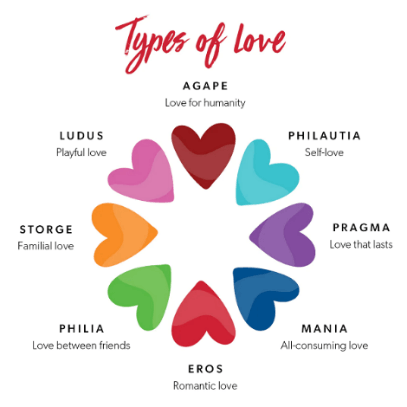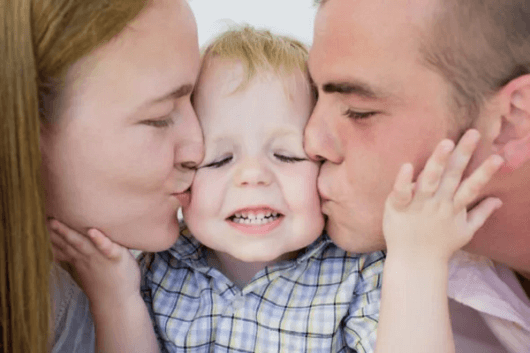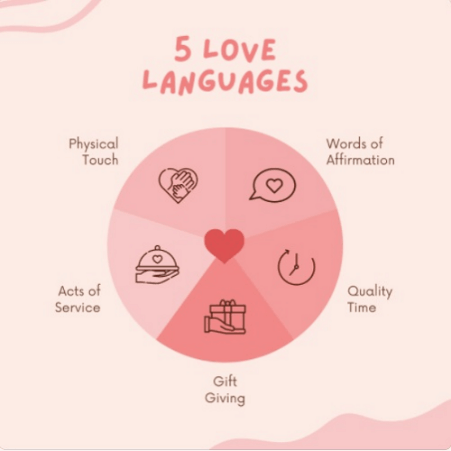Love- DefinitionIntimacy, desire, and commitment define love as a collection of feelings and actions. It entails tenderness, proximity, safety, attractiveness, affection, and trust. Love has different levels of intensity and can evolve. It can lead to bad feelings like envy and tension, but it is also linked to a variety of pleasant emotions including happiness, enthusiasm, life satisfaction, and bliss. Some would contend that one of the most significant human emotions is love. It is still one of the least understood behaviours, despite being among the most investigated. For instance, scientists disagree on whether love is a purely cultural or biological phenomenon. Most likely, both genetics and culture have an impact on love. Although hormones and genetics play a significant role, our notions of love also have an impact on how we exhibit and experience love. What are a few indications of love? There are differences between liking and loving someone, according to researchers. Three components make up passionate love, as per psychologist Zick Rubin:

Rubin created two questionnaires, referred to as Rubin's Scales of Liking and Loving, to assess these characteristics based on this conception of romantic love. People prefer to think of those they like as being nice, but true love is characterized by loyalty, possessiveness, and trust. Variety of LovePsychologists have recognized a variety of various sorts of affection that people might feel since not all types of love are created equal. Such forms of love consist of:

Triangular Theory of Love by Robert SternbergParticularly, in the early 1980s, psychologist Robert Sternberg created his renowned triangle theory of love. His work has been extensively expanded upon, and studies have shown its cultural universality. Sternberg identified seven different varieties of love by dividing them into three main elements: intimacy, passion, and commitment. Kind of Love Elements:
Is it Cultural or Biological Love?Like pleasure or anger, some academics contend that love is a fundamental human feeling. However, other scholars contend that love is a sociocultural phenomenon resulting in part from societal constraints and expectation. All civilizations have romantic love, according to research, which implies that there is a significant biological component to love. Humans are compelled by nature to look for and experience love. However, culture has a big impact on how people perceive, experience, and express romantic love. Is Love a Feeling?Researchers, sociologists, and psychologists have differing opinions about how to define love. Many claims that it is a vital physiological force rather than an emotion as we generally perceive it. Enrique Burunat, a psychologist and biologist, claims that love is a physiological motive similar to sex drive, hunger, thirst, and other bodily needs. The American Psychological Association, on the other hand, describes it as "a complicated feeling." 
All civilizations have romantic love, according to research, which implies that there is a significant biological component to love. Humans are compelled by nature to look for and experience love. However, culture has a big impact on how people perceive, experience, and express romantic love. Understanding LoveThere are several ways to demonstrate affection. Each person contributes their past and needs to every relationship, making them all unique. You may express love to the individuals you are concerned about by doing things like:
Influence of LoveThe importance of love, connection, and affection on life quality and health cannot be overstated. Relationships of love have been associated with:
Guidelines for Fostering Love Intimacy, commitment, and trust to a high degree are characteristics of long-lasting partnerships. You may do the following things to foster loving relationships:

Possible MistakesShakespeare once remarked that love's journey is never easy. There will always be issues, arguments, miscommunications, and disappointments since no relationship is flawless, which can cause stress or grief. Thus, even though love is linked to a wide range of nice sentiments, it can also result in a variety of unpleasant emotions. Following are some potential hazards of falling in love:
People will inevitably feel some unpleasant emotions when they fall in love, but it can become troublesome if they exceed the good or start to affect either person's capacity to function normally. When a couple needs assistance handling emotional problems, stress, or miscommunication, relationship therapy may be useful. Background of LoveLove has just lately been studied scientifically. According to Sigmund Freud, the study of love used to be left up to "the creative writer to represent for us the required conditions for loving." As a result, he continued, science will inevitably focus on the same elements that have been used by artists to create works of art that have entertained people for thousands of years. Since Freud's comments, there has been a huge expansion in the study of love. Early investigations into the nature and origins of love, however, received a lot of criticism. U.S. Senator William Proxmire berated academics who were examining love in the 1970s and mocked the endeavour as a waste of taxpayer money. Despite early opposition, research has shown the significance of love in both infant development and adult health. Passionate Love versus Romantic Love
There are two sorts of romantic love: passionate love and companionate love. The majority of romantic relationships-heterosexual or same-sex-involve both of these elements. People often define being "in love" as intense affection. It involves passionate emotions and a strong desire for somebody, to the point where they could constantly fantasize about being in their arms. Companionate love is the term for the second component. Although it is not as strongly felt, it is complicated and links emotions of emotional closeness and dedication with a strong attachment to the love relationship. What Changes with Time in Love?Although passionate love begins off strong, research on how romantic love evolves often reveals that it dwindles during the duration of a partnership. This is due to several factors. Routines evolve as couples get to know one another better and grow more certain about their future together. The likelihood of experiencing novelty and excitement, as well as the regularity of sexual activity, can both drop. This may cause intense affection to fade. Even though not all couples experience a decline in their passionate love, according to numerous research, 20-40% of couples do. The biggest decline is most likely to take place in the second decade for married couples who have been dating for longer than 10 years. Companion love, on the other hand, is usually observed to grow with time. Although studies show that most romantic relationships involve both passionate and companionate love, it is companionate love-rather than passionate love-that might have a detrimental impact on a relationship's ability to last. What Purpose can Love Serve?People's bonds and commitments to one another are maintained through the emotion of love. According to evolutionary psychology, love is developed to keep couples together so that their offspring may live and develop into sexually mature adults. For humans, childhood lasts a lot longer than it does for other animals. Love is especially vital to humans since children depend on grownups for so many decades to thrive and acquire the knowledge and skills necessary for a successful life. It's impossible to imagine how humankind could have developed without love. Love is developed to keep couples together so that their offspring may live and develop into sexually mature adults. Love is anchored in biology as well as having an evolutionary basis. According to neurophysiological research on romantic love, those who are really in love have their reward and pleasure-related brain areas activated more. In actuality, the active brain areas are the same ones that cocaine activates. Chemicals like oxytocin, vasopressin, and dopamine are released in these areas, resulting in happy, euphoric sensations that are also connected to sexual desire and excitement. It's interesting to note that these brain areas are not active when we consider friendships or other types of non-romantic interactions. These results demonstrate that loving someone does not equate to falling in love with them. What type of Love are You?Three main types of love have been identified through research. The term "love styles" was first used by psychologist John Lee. They are eros, ludus, and storage. These approaches to romantic relationships are based on people's ideas and beliefs about love, which are included in these styles. ErosThis type of love, also known as sexual love, is characterized by a heavy emphasis on sex, the rapid emergence of intensely intense feelings for another person, and physical attraction and sex. LudusThis approach entails being emotionally cold and frequently involves "game-playing." It should come as no surprise that those who support this loving style are hesitant to commit, at ease breaking up with partners, and frequently begin new relationships before calling time on an existing one. StorgeStorge is frequently viewed as a more sophisticated expression of love. There is a focus on developing a connection with someone who shares similar interests, open affection is shown, and physical appearance is less important. People who are experiencing storge love are trustworthy and independent. Or do You Prefer a Combination?More than one of the following styles could fit you. There is evidence that some persons have a combination of the three primary types of love. Lee called these combinations mania, pragma, and agape. Anxiety over-commitment to the relationship coexists with powerful feelings for a companion in maniacal love. To select a spouse who would be a nice companion and friend, pragmatic love entails making wise relationship decisions. Agape is a selfless, altruistic love that is motivated by a feeling of obligation. What makes You Admire the Way that You do?The type of love that someone has nothing to do with their ancestry. Instead, it's linked to a person's personality development and experiences in previous relationships. According to certain research, those who are high on negative qualities like narcissism, psychopathy, and Machiavellianism tend to choose ludus or pragma love more. More mania love is supported by people with an insecure attachment type, which includes a strong desire for approval and obsession with romantic interests, whereas eros love is not supported by those who find intimacy and proximity unpleasant. Lust Vs LoveIt may be challenging to distinguish between love and desire, especially at the beginning of a relationship. Both involve a strong want to be near another person and a strong physical attraction, but only love is characterized by a sustained, euphoric flood of feel-good hormones. Love is a relationship that two people nurture through time by getting to know one another and going through life's many highs and lows together. It calls for dedication, patience, respect, and acceptance. Contrarily, lust is mostly motivated by the desire to reproduce and is related to the sex-driven feelings that first entice people to one another. Lust obscures our capacity to perceive a person because of who he or she is and is characterized by hormone levels and idealistic infatuation; as a result, it may or may not result in a long-term relationship. For instance, Lana and Steve have a serious relationship, and she is beginning to feel less attracted to him sexually. Though she loves and cares for him, she can't help but feel uncomfortable and unsatisfied with their physical interaction. 
She feels an immediate connection and desire when she first sees Brendan. Even though she knows nothing about this new man other than how his proximity makes her feel physically, chemical signals in her brain begin sending signals to seek him. She is overtaken by lust for a new person rather than attempting to increase closeness with her existing spouse. Some could argue that a healthy mix of love and desire characterizes the ideal intimate connection scenario. After all, the beginning stage of a long-term relationship is usually marked by passion, thus it is a habit that devoted couples should work on maintaining. Mental Health and LoveMost people concur that love is important for both physical and mental well-being, even though nearly nobody can rely on a single description of what love is. The advantages of love have been proven in several research. There are many ways that love affects mental health, however, some examples include: Babies who are not frequently held and cuddled may experience developmental delays or illness. Low levels of self and depression are highly connected with feeling unwanted. People who both experience and express love for others are likely to be happy. Long-term health can be affected by love and experiencing emotional closeness may boost defences. For some people, the word "love" may refer to nearly anything. Love is devotion and commitment for married couples, but it can feel complex and difficult for university students in their first committed relationship. No matter where you are on the spectrum or how happy or unhappy you are in a relationship, everyone has a different perspective on what love entails and what it implies in a happy marriage. When it Comes to Those who are Single, Love is?Love is security "Love is the sensation that makes me feel the safest. Love is having someone with you through every step of your life's journey whom you can lean on as your best friend, lover, partner, sounding board, cheerleader, and snuggle buddy. Love is indefinable "Love is a feeling that cannot be expressed in words." Love is about giving and receiving A good relationship is being completely honest with someone and expressing your thoughts, feelings, and daily experiences with them. But it has to be reciprocal. Any connection that lacks in a certain area, on either side, is unhealthy and unsatisfactory." Love is respect "A strong relationship is based on mutual respect. Each one is aware of the promise they are taking to the other. Love is syncing up "A healthy relationship might refer to a wide range of various kinds of partnerships but being in sync is the most crucial component of being in a relationship. The most crucial thing is that you both agree, regardless of whether you want to chat every hour of the day or decide that you're both too busy and will only call on the call at night. Love is commitment The secret to a successful relationship is the daunting but essential effort of commitment, according to the saying "Love is Commitment." A genuine connection requires being present for the other person. Things don't work out with a person who would have been ideal for us when we don't put in the effort. Love might be the finest emotion one can have if you make the additional effort for someone who can return the favour. The vulnerability of love Love is simply handing someone a roadmap of all your faults and shortcomings and trusting them not to misuse that power because love is dangerous. And it can be so lovely because it forces you to be vulnerable, which is the toughest thing a person could ever do. "Growing Together" is what love is Things won't be perfect all the time. Even if your spouse could say or do things that irritate you, if you are prepared to see these things not as hurdles but as chances for development, then you are genuinely in love. Knowing each other's love language Knowing your significant other's love language is essential to expressing love effectively. He likes to give hugs and stroke his back. It's my way of saying "I appreciate you" or "You look nice," verbally. Whatever it is, knowing what makes one another happy and making an attempt to discover new methods to do so has taught us to appreciate each other better. Healthy communication is love "We don't mean texting when I say communicate. Calling and Facetime are included. I know from experience that texting may lead to a lot of miscommunications, which can lead to unneeded arguments and problems with trust. To have a good relationship, you need to trust each other and communicate with one another. Equality is love "A healthy relationship is one in which both parties are treated equally. We all share the same levels of respect, affection, and concern.
Next TopicName Definition
|
 For Videos Join Our Youtube Channel: Join Now
For Videos Join Our Youtube Channel: Join Now
Feedback
- Send your Feedback to [email protected]
Help Others, Please Share










